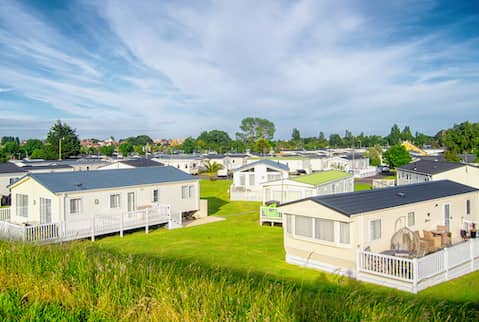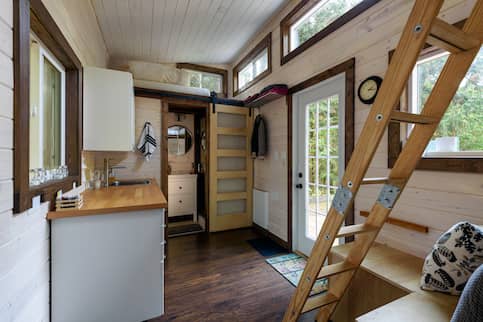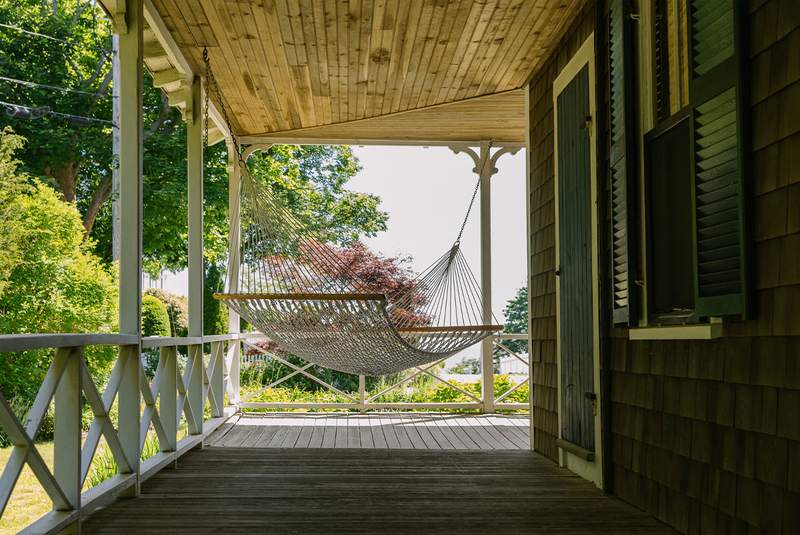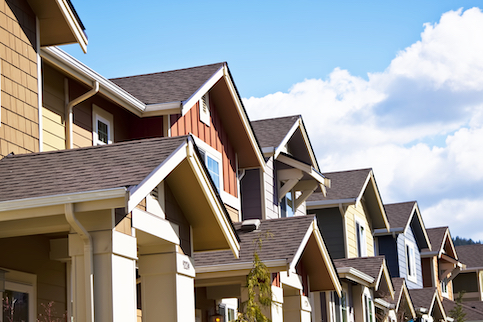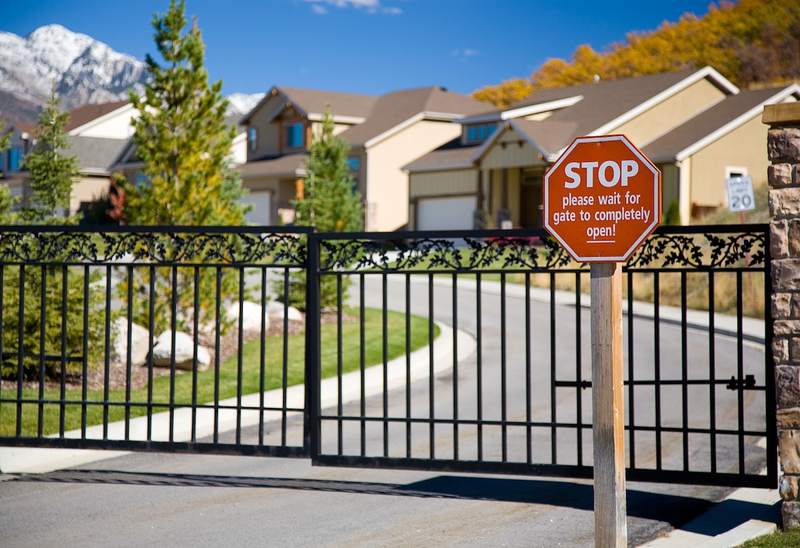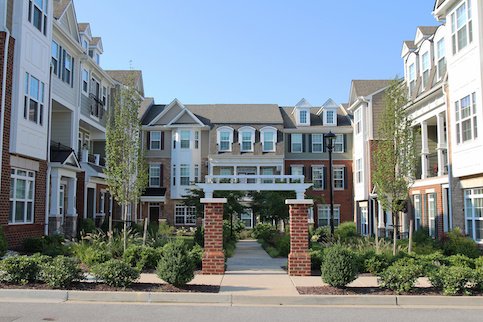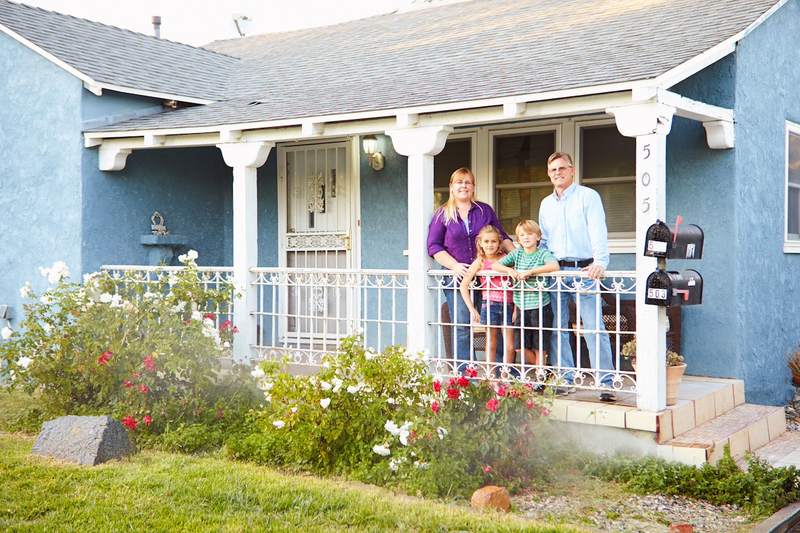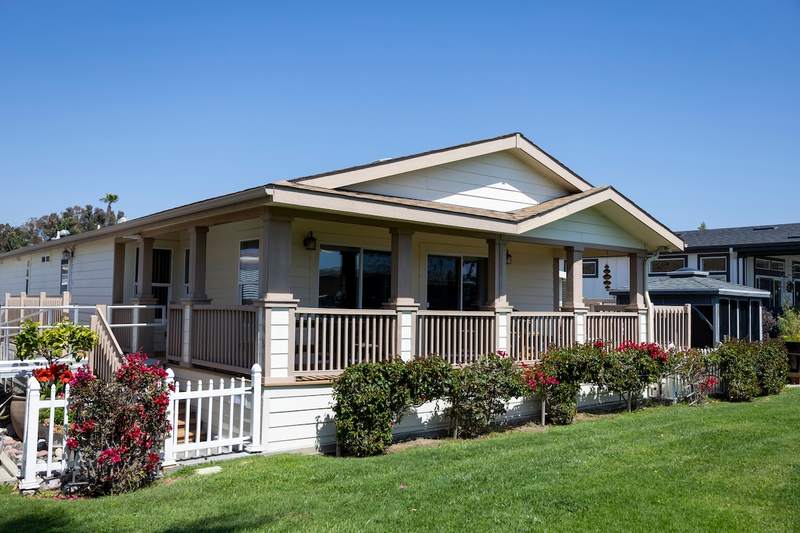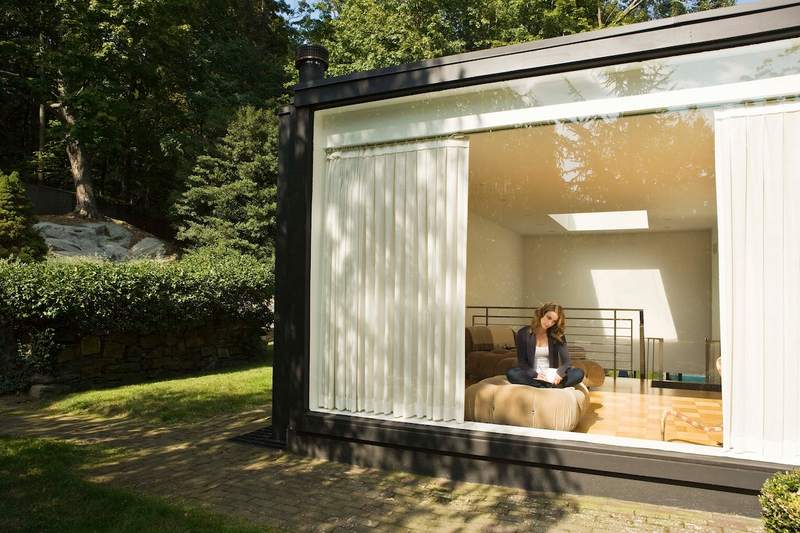Effective Nov. 16, 2025, both Fannie Mae and Freddie Mac no longer require a specific minimum credit score for conventional loan approval. Instead, loan decisions will be based on an analysis of overall credit risk factors.
If you’re searching for a more affordable alternative to a single-family house, a manufactured home may be a good choice. The challenge, however, is you’ll need to find and qualify for a manufactured home loan. Here’s what you need to know about getting a loan for a manufactured home.
What Are Manufactured Homes?
A manufactured home is built in a factory before being transported and assembled at the location where the homeowner plans to live. In comparison, a traditional house is constructed directly on location.
Mobile Home vs. Manufactured Home
Many people think mobile and manufactured homes are the same, but that’s not the case.
The main difference between them comes down to when they were built.
According to the U.S. Department of Housing and Urban Development, a mobile home – also called a modular home – is a factory-built home made before June 15, 1976, when HUD standards took effect.
Factory-built homes built after that date are considered manufactured homes and display a red certification from HUD on the exterior of each section.
You can’t take out a mortgage on a mobile home, but you can finance a manufactured home, often with conditions. For example, a manufactured home must be permanently affixed to the foundation to qualify for a conventional mortgage.
What’s Your Goal?
Buy A Home
Discover mortgage options that fit your unique financial needs.

Refinance
Refinance your mortgage to have more money for what matters.
Tap Into Equity
Use your home’s equity and unlock cash to achieve your goals.
What Type Of Loans For Manufactured Homes Are Available?
Several types of loans can be used to buy a manufactured home, each with benefits and drawbacks.
Conventional Loans
A conventional loan is a mortgage not backed by a government agency, and these loans can be conforming or nonconforming. Conforming loans meet the guidelines set by Fannie Mae and Freddie Mac, while nonconforming loans do not.
Fannie Mae and Freddie Mac support financing for manufactured homes that meet specific requirements. Fannie Mae requires manufactured homes to be at least 400 square feet and 12 feet wide. These homes must be installed on a permanent foundation and titled as real estate, not personal property. Freddie Mac requires the home to be a single- or multiwide dwelling, attached to a permanent foundation and considered real estate instead of personal property, which varies by state.
You can apply for a fixed-rate or adjustable-rate mortgage and make a down payment as low as 3%. You’ll need a minimum credit score of 620 to qualify.
FHA Loans
Federal Housing Administration loans are a good option for borrowers with poor credit. If your credit score is at least 580, you can qualify for an FHA loan with a down payment as low as 3.5%. You can qualify with a credit score as low as 500 with some lenders, but you’ll have to make a minimum 10% down payment.
FHA loans also require a specific type of mortgage insurance, which could make them more expensive than other types of home loans.
There are two types of FHA loans you can use to purchase a manufactured home: Title I and Title II.
Title I FHA Loans
The FHA Title I program lets you use an FHA loan to buy or refinance a manufactured home. You don’t have to own the land your home resides on to qualify, but your lease must last at least three years.
Here are the maximum loan amounts under the Title I Manufactured Home Loan program:
- Manufactured home only: $69,678
- Manufactured home lot: $23,226
- Manufactured home and lot: $92,904
Title II FHA Loans
FHA Title II loans are available only for manufactured homes permanently attached to land. In addition, your home must be at least 8 feet wide, 40 feet long and 400 square feet, and the foundation must be inspected by an engineer.
If you apply for a Title II loan, you’ll have more lenders to choose from and may be able to find better rates and terms on the loan. You can use this HUD search tool to find the FHA mortgage limits in your area.
VA Loans
A VA loan is backed by the Department of Veteran Affairs, and it’s a good option for veterans, active-duty service members and eligible surviving spouses looking to buy a manufactured home. Most VA loans don’t require a down payment, but if you’re buying a manufactured home, you’ll need a minimum 5% down payment.
The VA also requires the home to be at least 700 square feet and attached to a permanent foundation. It must meet all local zoning requirements and be considered real estate, not personal property.
Chattel Loans
A chattel loan is a special type of loan you can use to buy a movable home or vehicle. According to the Consumer Financial Protection Bureau, around 42% of manufactured homes are purchased with chattel loans.
These loans can be easier to get, but they tend to come with higher interest rates and fewer consumer protections.
Personal Loans
The CFPB found that most manufactured home applications are denied at least partly because some states consider manufactured homes personal property, not real estate.
If you face this problem, you can use a personal loan to buy a manufactured home. Personal loans are unsecured, so you don’t have to use your home as collateral. You’ll also be able to avoid many of the fees that come with taking out a mortgage.
However, personal loans come with higher interest rates than mortgages, and finding a lender willing to cover the full cost of a manufactured home may be difficult. Borrowers with good credit and a low debt-to-income ratio will have the best chance of getting approved.
Ready To Become A Homeowner?
Get matched with a lender that can help you find the right mortgage.
How To Get A Loan For A Manufactured Home
Qualifying for a loan on a manufactured home can be tricky since lenders see them as a riskier investment. Manufactured homes depreciate faster than traditional houses, which can make them more difficult to resell. To get a loan for a manufactured home, you’ll need to do some digging and follow the necessary steps.
1. Check Your Credit
Check your credit report before applying for a mortgage. Borrowers with good credit qualify for the best interest rates and terms, and will have an easier time getting approved.
You can request a free copy of your credit report from the major credit bureaus – Equifax, Experian and TransUnion – by visiting AnnualCreditReport.com. Report any mistakes you find directly to the reporting bureau.
2. Save For A Down Payment And Closing Costs
You’ll need to save for a down payment and closing costs before buying a manufactured home. The amount you need depends on your credit score and the lender’s requirements for your loan, but you should plan to pay 3% of the purchase price for the down payment and 2% to 5% for closing costs.
3. Choose A Manufactured Home
Next, you’ll need to decide which manufactured home you want to buy. Here are some criteria to consider when looking at different homes:
- Size: You’ll start by figuring out how large you want your manufactured home to be. You can choose either a single-section, double-section or triple-section home. These homes typically range in size from 784 square feet up to 2,970 square feet.
- Location: You’ll need a location for your manufactured home. Renting a location in a manufactured-home community limits your mortgage options, while buying land may require a separate loan.
- Design: Everyone wants a nice home, but remember that high-end upgrades will cost you more.
4. Shop For A Lender
Once you’ve determined which loan type you want to apply for, you can research different lenders. Apply for mortgage preapproval with at least three different lenders so you can compare interest rates and terms and decide on the best deal.
5. Apply For The Loan
To officially apply, you’ll complete a loan application and document your finances. You’ll submit documents like pay stubs, W-2 forms, recent bank statements and copies of your tax returns. The lender will review the documents during the underwriting process and provide a loan estimate outlining the approved loan terms.
6. Close On The Loan
The final steps are to close on the loan, which involves making the down payment, paying closing costs and signing all the paperwork. Then, your home will be built, put in place, and ready for you to move into.
Take The First Step To Buying A Home
Find a lender that will work with your unique financial situation.
FAQ
Here are answers to common questions about manufactured home loans.
The Bottom Line
Manufactured homes can be an affordable alternative to traditional houses, but these properties can be challenging to finance. Requirements may vary by location, as well as by the age of the home you’re buying and whether you own or rent the land it’s located on. Researching the different types of loans available for manufactured homes can help you find a lender and a loan that works for you.

Dan Rafter
Dan Rafter has been writing about personal finance for more than 15 years. He's written for publications such as The Washington Post, Chicago Tribune and Wise Bread.
